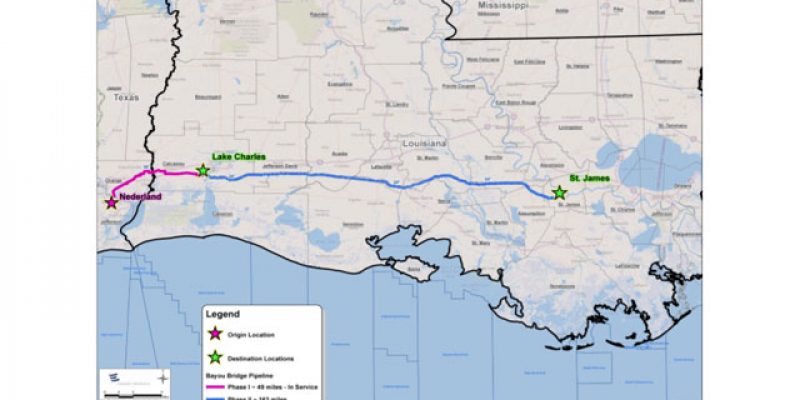First it was Keystone, then it was Dakota. One pipeline after the next has become the focal point of environmental and anti-fossil fuel organizations across the nation.
The bad news is that this fight has found its way to our very own backyards of south Louisiana over the Bayou Bridge Pipeline. These out of state and paid-for protestors have infiltrated our state in hopes to convince the public, civic leaders, and industry that the new pipeline will destroy our natural resources, as they continue their call for the end of fossil fuels.
The Bayou Bridge pipeline will transport crude oil from its terminal hub facilities in Nederland, Texas to terminal facilities and refineries in Lake Charles, arriving at the listing market hub in St. James. Finally, the crude will be redistributed to refineries throughout the Baton Rouge area. The pipeline will increase the access that Gulf Coast refineries have to North America and increase our nation’s ability to deliver refined product throughout our state, strengthening national security and making us less dependent on foreign and imported oil.
The project will provide a much needed economic boost by providing approximately $17.6 million in sales tax revenue, $750 million in total infrastructure investment, and in the first year of service alone we will see $1.8 million in property taxes. Bayou Bridge Pipeline will seek to use local vendors whenever possible to purchase major construction materials as the project is being built, further stimulating our economy. This pipeline project will create many direct and indirect jobs. During the construction phase alone, it is expected to employ 2,500 hardworking men and women of Louisiana. As the state continues to raise taxes and face an estimated $340 million mid-year budget deficit, now more than ever we need an economic boost.
Aside from creating jobs and an increase in economic activity, using a pipeline is the most efficient and safest way to transport crude oil. The Bayou Bridge Pipeline will decrease highway, water, and rail traffic, making it safer for those communities as well as increasing the overall health of our environment. A study done by the Engineering faculty at the University of Alberta found that by using a pipeline, transportation ultimately produced 61%-77% less greenhouse gas emissions than by rail. The majority of the of the pipeline project will parallel existing pipeline, thus minimizing the foot print of the project. Bayou Bridge Pipeline will:
- Test pipelines at higher than normal pressure,
- Use state of the art technology to monitor real time flow rate and pressure changes,
- Use remotely closed valves to isolate pipeline segments in case of emergency,
- and provide around the clock, staff monitoring of the pipeline.
Louisiana is suffering from some of the highest unemployment rates in the country, and as global commodity prices continue to stay low and volatile, the path to recovery seems uncertain. The United States must continue to utilize the nearly 2 million miles of carefully regulated pipeline to put us on a path to energy security.
We are an energy rich state, and we must ensure that Louisiana, with its wealth of resources, leads the country in the pursuit of energy security. Let us lead the way in investment and pipeline infrastructure and put the Louisiana oil and gas industry on the road to recovery. It is imperative to make this more of a reality and less of a pipe dream.
Advertisement
Advertisement

